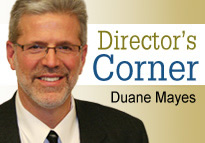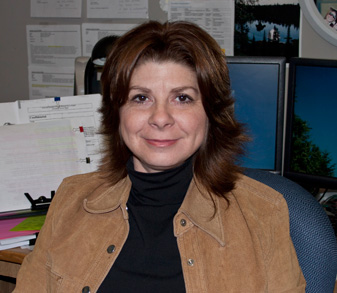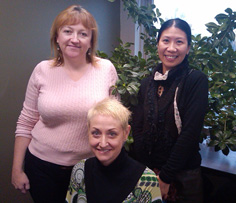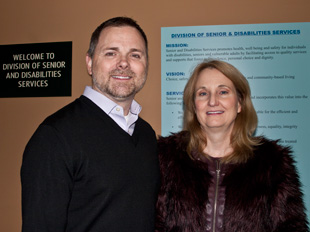Divisions link Alaskans with disabilities to work experience, jobs
|
When Donna Heilman arrived in Alaska in 2010, she started job hunting right away. She had plenty of work experience, including in her family’s automotive business, but Heilman, who is deaf, said in an email that “it was a rough road” until she found the Division of Vocational Rehabilitation in the state Department of Labor & Workforce Development.
Read more...
![]()
What’s new on the 2013 SDS Training schedule
- In-person “Basic Care Coordination” training is now three days (up from two) and in two new locations: Valdez and Wasilla.
- We added a new care-coordinator training, “Plan of Care.” The two-day workshop covers the development of all waiver plans of care. Locations include Kenai and Bethel.
- We have a new in-person “Introduction to SDS” class. It was designed for new employees, but anyone is welcome to attend. That open invitation holds for our other trainings, too.
“Connections,” our first annual care coordination conference, in Anchorage in early November, had a huge enrollment response. We reached maximum registration in just three days! We were happy to see agencies and individuals from all regions of Alaska. We’ll definitely choose a bigger venue next year! We’ll also hold care coordination training right after the conference to accommodate coordinators who are flying in. We’ll talk to other SDS units to see if we can offer more of interest for care coordinators. Let us know if you have requests for guest speakers, information or resources!
For more information, visit: http://dhss.alaska.gov/dsds/Pages/ops/senior-disabilities-servicetraining.aspx. Questions or comments? Email hss.dsdstraining@alaska.gov.
![]()
SDS Training keeps growing
|
The SDS training team and its role has grown immensely over the last few years. Program manager Kara Thrasher-Livingston has brought the training unit a long way from one person leading traditional in-person classroom trainings in a few major communities. A three-person team now serves more than 700 service providers statewide via traditional in-person classes, webinars with participants studying online together, and individual self-paced study. The team also trains the division’s 150 or so employees.
The training menu includes eight recurring courses plus regular info-sharing webinars to keep service providers, program participants and their families up to date with program changes and new developments.
SDS data miners at your service
Have an SDS data question? The division’s Research and Analysis Unit would love to answer it for you.
The RAU maintains the division’s key database, DS3, and creates custom reports to quickly answer common questions for providers, division staff and out-of-state researchers. The crew can also dig through databases and scour regulations to build eye-catching graphs or provide enough information for in-depth analysis.
Contact DSDSResearchAnalysis@alaska.gov with your questions. Anastasiya Podunovich is the unit manager.
New hires in Personal Care Assistance
|
Robin Hobbs recently joined SDS as the PCA unit manager and Rodney George was hired as the unit’s supervisor of assessment reviewers.
Hobbs has spent more than eight years with DHSS. She originally worked in the now-renamed Division of Family and Youth Services, then spent several years with the nonprofit Denali Family Services, before returning to DHSS to work as the telehealth coordinator for Alaska Psychiatric Institute.
George most recently managed a group of health care clinics in Joint Base Elmendorf Richardson’s hospital. While there, during several deployments, he served as a respiratory technician for a critical care air transport team based at Elmendorf that served severely wounded fighters.
They’ve been busy incorporating the new PCA regulations that came out of the Medicaid waiver review in recent years.
“Both of us are really excited to be here,” Hobbs said. “It’s a very important program to help keep Alaskans from going to a more restrictive level of care.”




